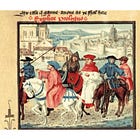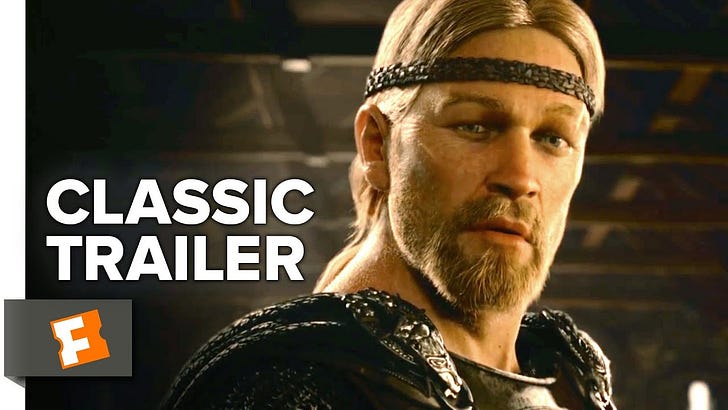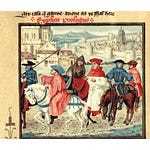Readings
MATERIALS
Dr. John Matthews Manly, Univ. of Chicago. English Prose and Poetry (1137-1892), 2 vols.
Dr. William J. Long, Univ. of Chicago. English Literature: Its History and Its Significance For The Life Of The English-Speaking World.
Additional Details
For further insights upon the history of textual criticism, here is an interview with the late Palestinian scholar Dr. Edward Said, who applied German theories of textual criticism to the study of contemporary media representations of Muslims, Islam, and MENA people by Western media. His Orientalism is a monumental analysis of how literature demonized non-Europeans throughout the centuries in order to justify the 19th century imperial project.
Or perhaps something a bit lighter and more contemporary?
Yes, the latest animated Spider-Man movies, with the multi-verse chocked full of different iterations of the same “textual” character, are demonstrations of how textual criticism operates.
Is Miles confined or obliged (predestined; his story arc has already been written) to experience the heartbreak of losing his father as every other member of the Spider-Verse? Each version of the Web-Slinger that steps forward in the clip above is a walking-talking form of a narrative that they desire to likewise impose on Miles Morales. Should he be subject to such false social narratives?
It is worthy of mentioning at this juncture how this perception of a “textual narrative” extends beyond simply books and towards larger projects that can be ‘read’ (perceived) as having ‘textuality,’ a tangible sense of being able to perceive intention or ideology. Urban planning and architecture can be understood/read in order to better comprehend deeper codes of control and social engineering. Miles as one of many in the Spiderverse effectively is a text personified, as are all other Spiderverse denizens.
Consider this earlier clip when he and his parents are interviewing the guidance counselor. The analogy used by the guidance counselor, the blank sheet of paper, is a replication of Dr. Said’s argument about taking ownership over one’s own narrative, “asserting one’s role as the author of your own autobiography,” so to speak, and it is the cornerstone of a larger topic that we will continue to address throughout the course.
Should Miles Morales (read: everyone) be constrained to a pathway dictating a family tragedy owing to expectations placed upon him by much larger social forces? Is this kind of mechanical determinism truly just or does it rob Miles of not simply a “narrative” but the larger modus of free will? The Spiderverse is the classical philosopher’s quandary on free will and autonomy, using the “origin story” narrative mechanism to ask much larger questions about social forces. Determining how and where we have control over the forces shaping our lives underwrites Spider-Man’s true quest.
Further consider this notion called ‘free will.’ As we shall see in the next lesson on Beowulf, Christianity and its theology of the Garden of Eden requiring the redemption of the Crucifixion is the marker that designates it as canonically British. It is fair to say that a major question for the entirety of British literature is predicated upon the matter of free will. Is it true that our humanity is defined by the fact that we possess free will to a degree much greater than the other mammalian species? Or should we truly boast about having wrecked the ecology in a manner no other animal is capable of? ‘Free will’ is the cornerstone of what British literature defines as the human condition, a debt that can be traced directly to the impact of the Church upon scholasticism. As students move forward through Beowulf, Chaucer, Shakespeare, and then climaxing with Milton’s Paradise Lost, there is a distinct and undeniable religious dimension and influence upon these texts.







